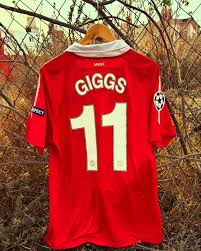Ryan Giggs: His Impact and Current Situation

Introduction
Ryan Giggs, a prominent figure in football history, is widely known for his remarkable career at Manchester United, where he has become a symbol of loyalty and talent. His contributions on the pitch have left an indelible mark on the sport, making his recent legal troubles and public controversies particularly noteworthy. Understanding the significance of Giggs’ legacy and the challenges he currently faces provides valuable insight into the narratives surrounding sports icons today.
Legacy at Manchester United
Giggs spent his entire professional playing career at Manchester United, joining the club’s youth academy in 1990 and making his first-team debut in 1991. Over the course of two decades, he amassed a staggering 963 appearances, contributing to 13 Premier League titles, 2 UEFA Champions League triumphs, and numerous domestic cups. His exceptional dribbling skills, vision, and ability to perform in high-pressure situations earned him recognition as one of the best wingers in football history. Even after retiring in 2014, Giggs continued to influence the game, first serving as an assistant manager and later taking on the role of head coach for the Wales national team.
Recent Developments
In recent months, Giggs has faced serious legal challenges that have overshadowed his football legacy. In August 2023, he was found not guilty of assaulting his ex-girlfriend, Kate Greville, and the court case brought extensive media attention. This followed a highly publicized trial that examined allegations of controlling and coercive behaviour, which has drawn significant public interest and divided opinion among fans and commentators. The verdict has led to discussions about the implications of personal conduct for public figures in the sport.
Looking Ahead
As Giggs navigates through these personal challenges, the implications of his legal situation for his future in football remain uncertain. While he retains a devoted following, opinion on his role in the sport and his future contributions may be reassessed in light of recent events. The discussion about accountability and the responsibilities of athletes off the field has gained increasing traction, prompting a reevaluation of how sports icons are treated in the media and by their supporters. As Giggs seeks to move forward, the football community will be keenly observing his next steps.
Conclusion
Ryan Giggs’ legacy as one of football’s greatest players is undeniable; however, the recent controversies surrounding him offer a complex perspective on the intersection of sports, fame, and personal conduct. These developments serve as a reminder that while athletic achievements are monumental, the actions and characters of these individuals shape their legacies just as significantly. For fans and observers alike, the path Giggs chooses next will be crucial in defining how he is remembered not only as a player but as a public figure.









